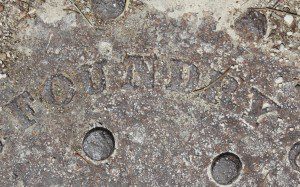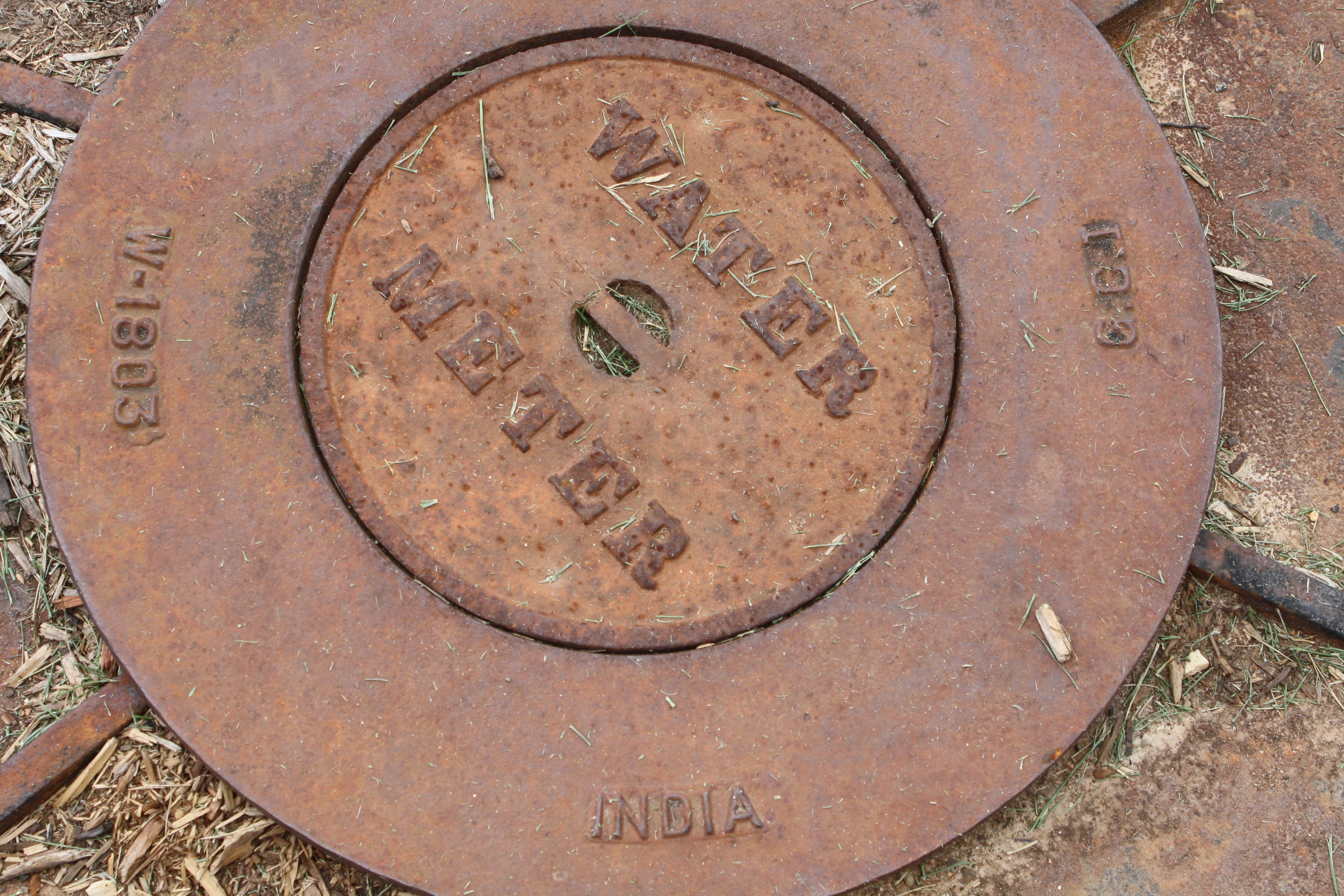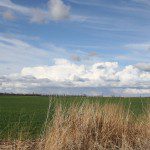
When’s the last time you looked down as you walked the streets of Moundridge? Did you notice the manhole covers? According to their stamps, they were forged in foundries near and abroad. I’ve spotted Oklahoma, Indiana, Hutchinson, KS and strangely enough: India.
That’s right: India–as in the Asian nation with a billion people. We get at least some of our manhole and water meter covers from India.

Apparently Moundridge isn’t the only city to use iron covers from India. New York City has them too, and two reporters from the New York Times traveled to India to check it out. In the foundry they visited, the reporters discovered a mix of pride and danger, men–and some women–working barefoot and with minimal safety gear as they ladled molten iron into forms. On seeing their report, ConEdison, the power company serving New York, made overtures to the Indian foundry requesting that the company abide by basic safety regulations.
The challenge of dealing with variant conceptions of health and safety across countries and cultures is complicated. It’s about making sure that our purchases don’t create injustice somewhere else. It’s a vital conversation–one I think we ought to be having about every aspect of our lives, shoes to manhole covers. Are the workers who make our everyday things treated right? Was the earth cared for in the manufacturing? We can’t allow ourselves the luxury of indifference. But even before that step, do we acknowledge the humanity of those who have mass-produced bits of our society?
I wonder if we notice and give thanks for the hands that have made our life possible. Do we bless those who have kneaded the pizza dough, picked the apples, stitched our clothes, forged our manhole covers? They’re often far-away hands, unseen hands, nameless hands. We should be concerned with the justice of their situations, with working conditions and human rights. But I think that concern has to begin with the simple acts of thanking and blessing. Those are human acts that humanize.
Thanks be to you, Oh God, for those who have picked this apple and harvested this wheat.
Thanks be to you, Oh God, for those who have sewn, folded, delicately pinned, and packaged this red shirt.
Thanks be to you for the work of those who forged this manhole cover that I step over.
Bless their hands. Bless their lives.











